ODC Elections Page: Fostering Civic Engagement and Democracy
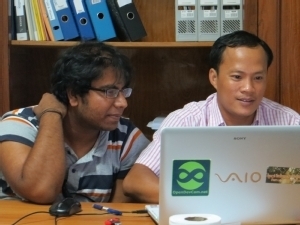
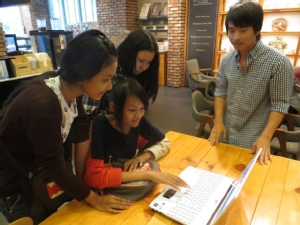
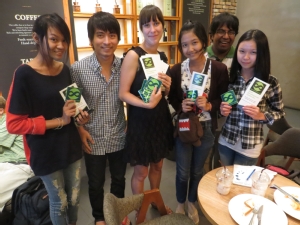
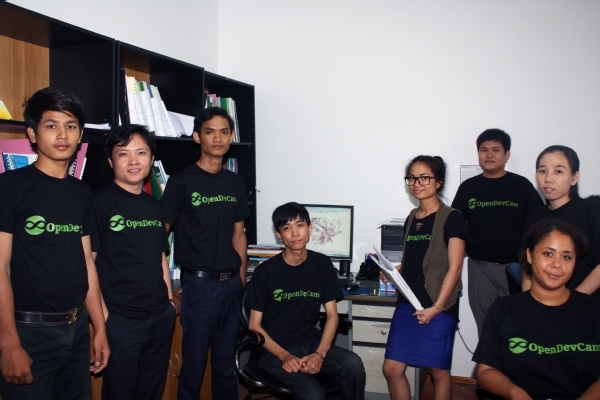
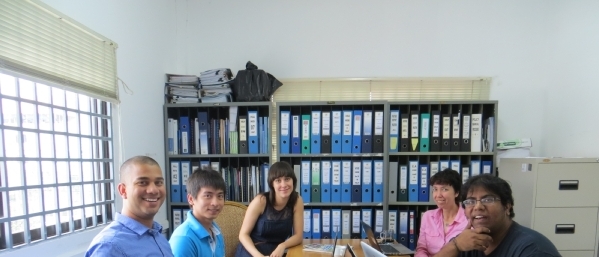
On Sunday July 28, over nine-and-half million eligible Cambodian voters headed to the polls to participate in the 2013 General Elections, through which parliamentarians and the prime minister will be chosen. This was only the nation’s fifth national election since the end of the civil war and the UN Transitional Authority in Cambodia (UNTAC) in1993.
When I arrived in Cambodia to begin my summer fellowship, I had no idea that I would be coming during an election year-much less that elections would actually be held while I was still here. Nor did I know that I booked my return flight for the day after the elections…I knew it must have been so much cheaper for a reason! Back to my work with ODC...
ODC’s mission can perhaps be summarized as follows: open data journalism. Since its foundation in 2011, ODC has been compiling and availing all information relating to Cambodia’s economic development, as well as its societal and environmental consequences. I had researched ODC before I began my fellowship, and was further briefed on its mission by my supervisors Terry and Pinkie once I arrived. The focus seemed to be on encouraging responsible and effective economic development through the dissemination of information.
A Bold Venture
So imagine my surprise when, during my first ODC editorial meeting, it was announced that ODC would be launching a new project-an Elections Page. The Elections Page would feature all data relevant to the upcoming general elections. The National Elections Briefing, in particular, would serve as the centerpiece of the site and would feature the legal framework behind the elections with a special focus on the electoral history, framework of governance, and the procedures for voting, campaigning, and running for office. As well as being a resource for outside observers and news organizations, the National Elections Briefing would be translated into Khmer in order to serve as a civics educational tool for potentially millions of Cambodian voters. I would be responsible for researching for and drafting this brief.
As a clueless rising 2L law student who had not even had the opportunity to take an American Election Law class (much less possess any familiarity with Cambodian Election Law), I have to admit the responsibility of being in charge of such a hugely important task was a bit daunting. Yet as I began researching Cambodia’s electoral history, framework of governance, and poring over the finer details of the Law on Election of Members of the National Assembly (or LEMNA, as it is affectionately known), I began to adapt and mold the project as my own.
Cambodian vs American Election Law: Who Does it Better?
I soon began discovering some fascinating differences between American and Cambodian election law. For instance, political parties who wish to run must not only register with the National Election Committee (the body responsible for overseeing all elections in Cambodia), but they must also pay a 14 million Riel ($3,500) deposit which they can only get back if they win at least 3% of the votes or 1 parliamentary seat. Forget petitions and getting signatures-if a political party wants to play ball in Cambodia, they have to be ready to put some skin in the game and make an up-front investment on their likelihood of success. The barrier of entry this deposit represents can be quite high for up-and-coming parties, and once can see how they can be marginalized by the big boys.
Another significant issue for voters is how difficult it can be to acquire a change in residency. Thus it is not at all uncommon to hear about urban voters having to commute across the country in order to go back to their home villages to vote. One can imagine that for many otherwise eligible voters, this is a luxury which they simply cannot afford.
Cambodian Democracy 101: Turning Legalese into a Civics Lesson
After familiarizing myself with Cambodian Election Law to the best of my ability, writing the Election Briefing itself presented a host of challenges. For one, it had to serve as an effective educational civics lesson. Presentation of the information in a readily accessible manner would be key. This meant breaking down Cambodia’s various election laws into its most fundamental components while using unambiguous, fifth grade-level language. “Good lawyers are able to take complex statutes and regulations and then break them down and present the information in a easily accessible manner for their clients”, counseled ODC Consulting Editor Zach.
In terms of content, separating the wheat from the chaff was crucial. The focus was on the pragmatic fundamentals: What are the basic structures of Cambodia’s government, as well as how and where to vote, register as a political party, run as a candidate, etc.. Utilizing objective language at all times in order to maintain ODC’s credibility was also another major challenge. This was especially tricky with regards to the post-1993 electoral history in which events such as the 1998 clashes had to be addressed in an extremely sensitive manner.
Thanks to the amazing assistance and support of Terry, ODC Consulting Editor Zach, and especially ODC Editor Vicheth, and after many drafts, the Election Briefing was finally completed and translated into Khmer by our translator Darvuth.
Open Data As a Democratic Instrument
As we were working on this briefing, the rest of the ODC team were busy preparing a range of other features, including a stunning array of interactive maps which showcases voter distribution and detailed results of past elections province-by-province. The ODC Elections Page was launched on July 4, and represents a remarkable application of Open Data as a means to support civic education and support democracy. As ODC Editor Vicheth explained, “sustainable development is dependent on good governance, which in a democracy relates to elections. We’re providing election information to citizens so that they can be informed voters.”
Open Data opens minds and societies, and open data journalism is rapidly becoming a vital tool to foster transparency, democratic governance and civic engagement. In fact, the ODC Elections Page was actually selected by the Library of Congress to be included in its web archives due to its importance regarding the "historical record" of the 2013 Cambodian General Elections. The humble role that this clueless law student and summer fellow had the privilege to contribute in this process was as humbling as it was exciting.
For more on the election atmosphere and campaigning (as well as a bunch of cool pictures and videos!), check out "Campaigning-Phnom Penh Style!"
Disclaimer: All views articulated in this article are entirely the writer's own and are in no way reflective of any other individuals, institutions or organizations.